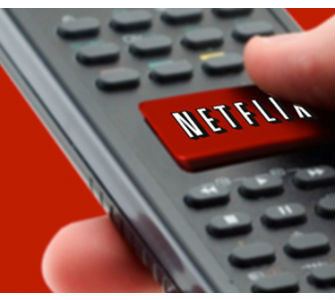Following in the footsteps of paid peering deals with Comcast and Nordic provider Telenor earlier in the year, online video provider Netflix has now forged a similar deal with Verizon to have its streaming over-the-top (OTT) traffic delivered to Verizon subscribers via a direct interconnection between the two—boosting quality of service.
The deal was first reported by BTIG Research analyst Walter Piecyk via Twitter—and Netflix has now confirmed the deal in the news. It has been rumored for weeks though: Speaking on CNBC, Verizon CEO Lowell McAdam said that the two companies were in talks to ink a paid direct peering agreement as well.
"It shows you don't necessarily need a lot of regulation in a dynamic market here,” he said. “Doing these commercial deals will get good investment and good returns for both parties.”
Netflix would disagree, pointing to Verizon recently prevailing in a lawsuit to block the Federal Communications Commission's ability to enforce Net neutrality rules. Since then, consumers have anecdotally reported slower video streaming experiences across a variety of Internet providers, who of course also happen to be pay-TV providers.
Perhaps not coincidentally, two months ago Netflix agreed to pay Comcast for direct access to the No 1 cable MSO's network — an interconnection agreement that will help ensure that Netflix movies and television shows stream without hiccup to Comcast customers. While it's not quite a toll-road deal that would kill Net neutrality by allowing ISPs to throttle traffic that they don't like and aren’t paid to deliver, it sets up a precedent for Netflix and others' approach to the broadband providers upon which they rely.
Netflix CEO Reed Hastings blasted the situation in a blog, saying , “some big ISPs are extracting a toll because they can -- they effectively control access to millions of consumers and are willing to sacrifice the interests of their own customers to press Netflix and others to pay. Though they have the scale and power to do this, they should realize it is in their long term interest to back strong Net neutrality. While in the short term Netflix will in cases reluctantly pay large ISPs to ensure a high quality member experience, we will continue to fight for the Internet the world needs and deserves.”
Netflix also said in a letter to shareholders that it opposed Comcast's $45 billion merger with Time Warner on the ground that it will “result in online video content providers paying higher prices for access to Comcast customers or delivering poorer service to customers who depend on Comcast for broadband access.”
“Comcast already controls access and sets the terms of access to a substantial portion of people who connect to the Internet in the United States,” said Ken Florance, vice president of content delivery at Netflix. “We're very concerned that a combined Comcast-TWC will place toll taking above consumer interests and will use their combined market power to the detriment of a vibrant and efficient Internet. That’s why Netflix opposes the merger.”
Netflix accounts for a majority of peak Web traffic on any given day (and 30 percent of overall Web traffic, according to research from Sandvine), and ISPs like Verizon have complained that Netflix generates too much traffic for them to monetize. That has given rise to a series of disputes over settlement-free peering arrangements, as when Comcast told Level 3 it would no longer exchange Internet traffic without being paid for it. In that case, which started in 2010, Level 3 was a main backbone provider for Netflix, and was sending more traffic to Comcast than Comcast was sending back to Level 3 — an uneven arrangement that demanded compensation, in Comcast's view, to help pay for necessary network upgrades to accommodate the heavy Netflix load.
Florance fed that notion to the incinerator as well: “Comcast does not carry Netflix traffic over long distances. Netflix is itself shouldering the costs and performing the transport function for which it used to pay transit providers. Netflix connects to Comcast in locations all over the U.S., and has offered to connect in as many locations as Comcast desires. So Netflix is moving Netflix content long distances, not Comcast.”

Image via Shutterstock.
He added, “Nor does Comcast connect Netflix to other networks. In fact, Netflix can’t reach other networks via Comcast’s network. For all these reasons, Netflix directly interconnects with many ISPs here in the U.S. and internationally without any exchange of fees.”
Essentially, he concluded, “Comcast is double dipping by getting both its subscribers and Internet content providers to pay for access to each other.”
It remains to be seen if the regulatory framework will change to address the concerns that Netflix has, or whether the merger will play out for OTT the way that it fears. But until there’s an answer, we can likely expect to see many more paid interconnection deals come down the pike.
Edited by
Stefania Viscusi